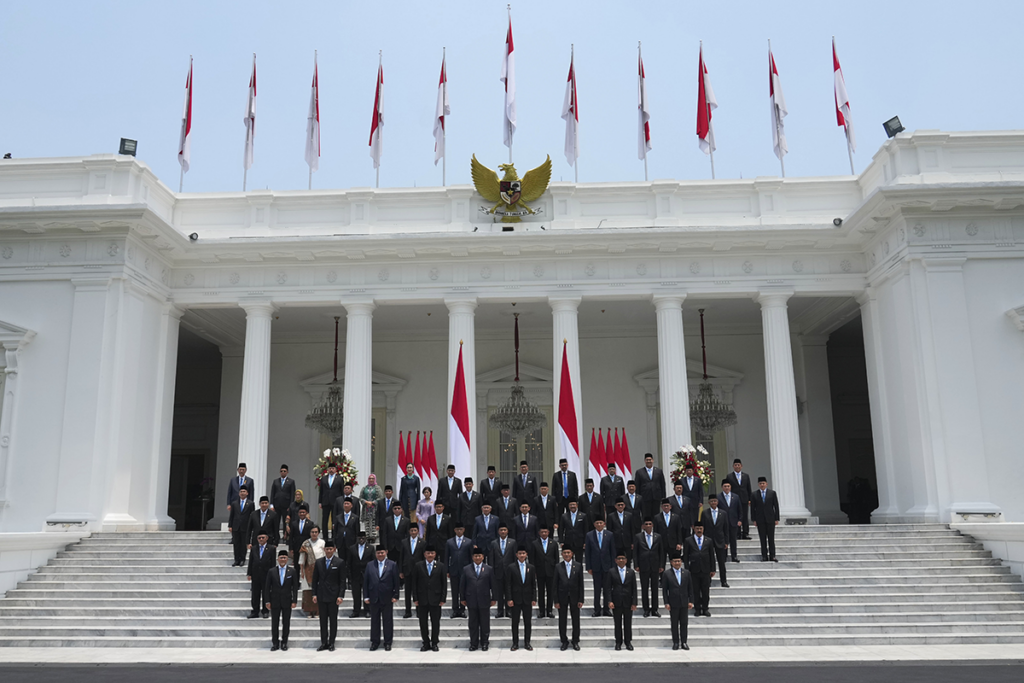China engages with ASEAN positively, setting tone of cooperation: analysts
Analysts on Monday expressed high expectations that China-Indonesia relations will continue on the path of sound development and realize more fruitful results, which is crucial for both countries and the region amid challenges.
Visiting Chinese Vice President Han Zheng, as President Xi Jinping’s special representative, attended the inauguration of Indonesia’s new President Prabowo Subianto on Sunday and held talks with him.
During his meeting with Prabowo, Han noted that President Prabowo’s visit to China right after his election victory demonstrated his deep affection and profound friendship toward China and his commitment to advancing China-Indonesia relations, the Xinhua News Agency reported Monday.
Han pointed out that President Prabowo emphasized key priorities such as food security and poverty reduction in his inaugural address, aligning closely with the people-centered development approach proposed by President Xi.
Han affirmed China’s support for President Prabowo and his new government, expressing confidence that Indonesia, under Prabowo’s leadership, will achieve further progress in national development.
China is willing to work with Indonesia to follow the strategic guidance of the two heads of state, push the building of the China-Indonesia community with a shared future to a new level, and contribute to maintaining regional peace and stability while promoting world development and prosperity, Han said.
Han also put forward three proposals for the next phase of China-Indonesia relations. First, to strengthen high-level strategic mutual trust and continue mutual support on each other’s core interests and major concerns. Second, to deepen comprehensive, mutually beneficial cooperation to benefit more people of the two countries. Third, to enhance international collaboration to promote the development of global governance in a more just and reasonable direction.
President Prabowo reiterated that China, as a major country in the world, is a key partner for Indonesia. He said the new Indonesian government attaches great importance to developing relations with China and will continue Joko Widodo’s friendly policy toward China.
Indonesia is willing to further deepen mutual support and mutually beneficial cooperation between the two sides, strengthen coordination on international and regional affairs, and promote greater development of bilateral relations, he said.
Ge Hongliang, vice dean of the ASEAN College at the Guangxi Minzu University, told the Global Times that China and Indonesia have maintained frequent exchanges, including high-level interactions, which continuously inject strong momentum into the development of bilateral relations.
With political trust laying the foundation, the comprehensive, mutually beneficial cooperation continues to fuel the development of bilateral relations, Ge said,
Given the changes in the global supply chain, spillover of geopolitical tensions outside the region, including the Middle East crisis, and the growing protectionism in some countries, China and Indonesia, both developing countries, share the call for stability and development, Ge said.
Indonesia, the most populous ASEAN member which plays a key role in the group, is a key pillar in China-ASEAN relations, Xu Liping, director of the Center for Southeast Asian Studies at the Chinese Academy of Social Sciences, told the Global Times.
Han is set to visit Brunei from Monday to Wednesday, according to the Chinese Foreign Ministry.
Being a close neighbor of ASEAN and part of the Asia Pacific, China’s active and positive engagement with ASEAN members helps set the tone of cooperation and development for the region, Xu said.
Such regional consensus and cohesion is extraordinarily precious at a time when the Asia Pacific, a long peaceful region enjoying opportunities of prosperity, is facing increasing challenges including supply chain instability, protectionism from certain countries, and becoming a geopolitical flashpoint under external instigation, analysts said.
GT




